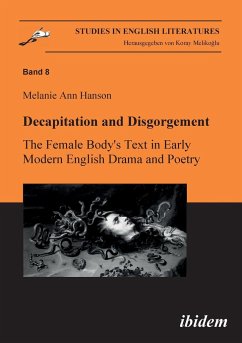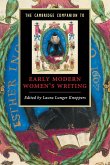This book brings the ideas of French feminist Hélène Cixous to bear on a number of Early Modern English texts. The female characters of Mariam from Elizabeth Cary's The Tragedy of Mariam, Lavinia from William Shakespeare's Titus Andronicus as well as John Milton's Eve in Paradise Lost and the poetic voice of Isabella Whitney are investigated through the application of Cixous's theories of figurative decapitation and disgorgement. The author examines the creation of a unique discourse through the blending of what is stereotypically referred to as "female text" with "male discourse," which results in what Cixous would call "bisexual discourse."








